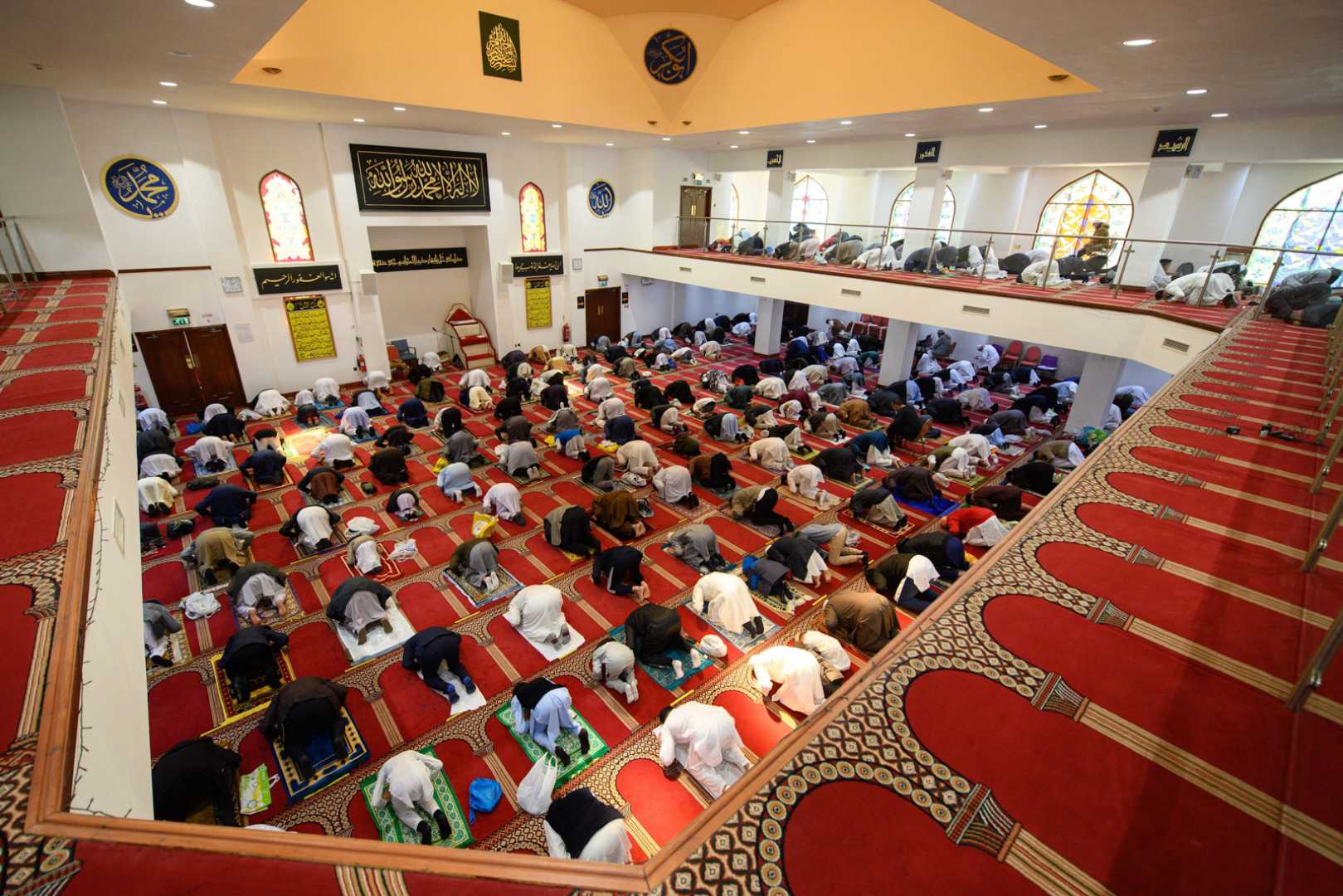News
Historic Eid Prayer Televised, Showcasing True Muslim Faith in Britain

BRADFORD, England — For the first time in British broadcasting history, Eid prayer was televised live on a UK terrestrial channel, providing viewers a unique insight into Islamic faith. The event took place Monday at Bradford Central Mosque, marking a significant moment for British Muslims.
The broadcast began with the recitation of the Qur'an, followed by a sermon in both English and Arabic, concluding with the congregational prayer and traditional Eid embraces. This moment was not just about the prayer; it offered a glimpse into a vibrant community celebrating its core traditions.
For many Muslims, including the author, these familiar scenes are a staple of Eid celebrations. The mosque was filled with uncles in keffiyehs, children darting between congregants in search of sweets, and families adorned in their finest clothes and intricate henna designs. These elements create an atmosphere filled with joy, spirituality, and togetherness after the month-long observance of Ramadan.
“Watching it unfold on the nation’s main TV channel was a refreshing novelty,” the author noted. “It was affirming and emotional to see our culture and traditions appreciated publicly.” This visibility, however, also sheds light on a broader issue: how Muslims are often depicted in media.
The author expressed skepticism toward usual portrayals of Muslims, which often focus on making them more “palatable” through non-religious activities, such as cooking or athletic achievements. Historically, significant aspects of Islamic life, such as prayer, have been relegated to the sidelines unless they fit a certain narrative.
This year’s broadcast was significant because it showcased authentic religious practice rather than media-friendly representations. “The prescription to pray five times a day provides essential breaks from the rigors of modern life,” the author explained. “It compels us to humble ourselves before God, serving as a reminder against the self-worship prevalent in contemporary society.”
Despite its beauty, Muslim prayer sometimes faces scrutiny or misinterpretation, particularly in public spaces. The televised Eid prayer challenges this stigma by publicly normalizing an act that is often misjudged. The author remarked, “I hope this act represents a movement towards understanding rather than fear.”
During the sermon, the imam emphasized that Eid is about continuing the spiritual growth cultivated during Ramadan. “Our faith teaches us to be active participants in our communities,” the imam said, highlighting the importance of caring for others. “We aren’t true believers if our neighbors go hungry.”
The portrayal of Eid on national television is just a single step in addressing ingrained Islamophobia. As the author reflected, witnessing a prayer that once felt private shared with the public is a poignant reminder of progress against society’s preconceived notions. “It’s not in blanket assimilation that we find belonging, but in staying true to who we are,” they concluded.
While the broadcasting may not eliminate all biases, it fosters a greater awareness and understanding of a faith that often faces negative judgments. For many, including the author, this moment on BBC represents hope—a beginning of dialogue about diversity, acceptance, and the rich tapestry of cultures that enrich Britain.












